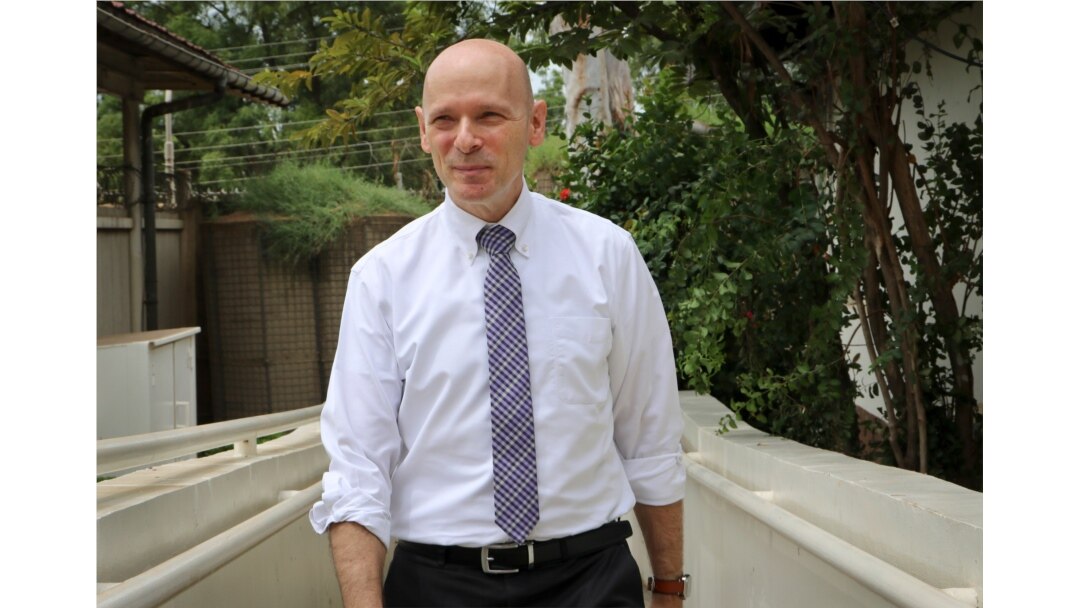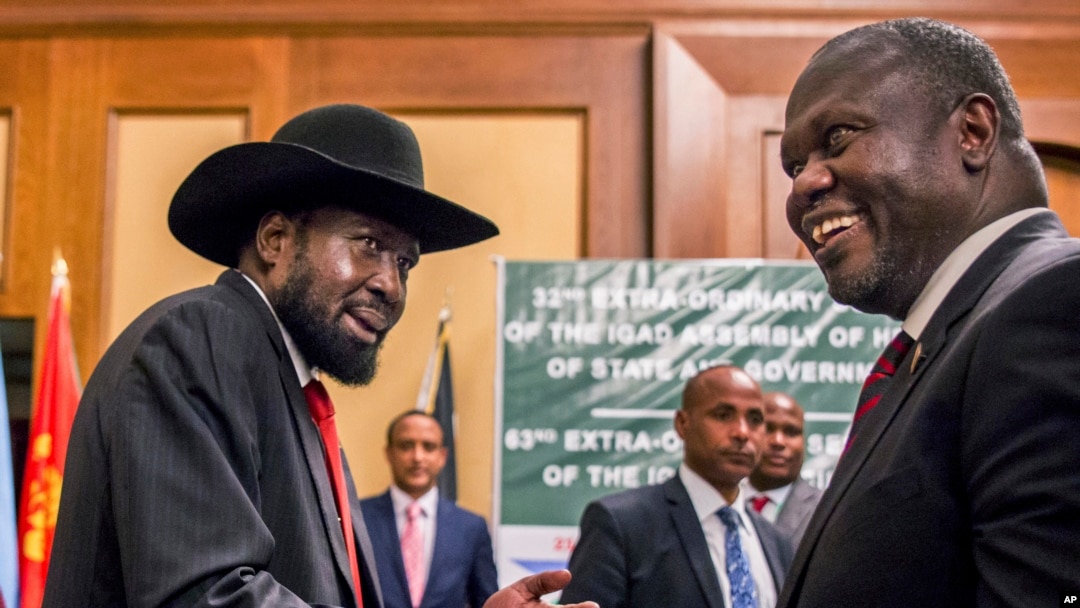U.S. development aid to South Sudan depends on whether the country's formerly warring parties implement reforms outlined in the country's 2018 peace deal, says the U.S. ambassador to Juba.
In an interview Tuesday with VOA's South Sudan in Focus, Tom Hushek said the transitional unity government formed earlier this year has not carried out several parts of the signed agreement.
"For instance, security sector reform, public financial management reform, transitional justice mechanism, work on a new permanent constitution and planning for the elections process — these are all reform efforts that are in the peace agreement and this is really the heart of the peace agreement," said Hushek.

FILE - The U.S. Ambassador to South Sudan Thomas Hushek speaks to The Associated Press at the embassy in Juba, South Sudan, June 25, 2018.
He said the U.S. is prepared to help rebuild the African country from the damage of its civil war — if political leaders start to make the reforms a reality.
"As the reforms that are part of the peace process are on the way, there will be more opportunities to give development assistance and I don't doubt that there will be much more willingness by the U.S. and the international community to help with development efforts if the reforms are undertaken," Hushek told VOA in the phone interview.
Hushek has repeatedly urged South Sudan's political leaders to fully implement the 2018 deal in order to restore peace and stability across the country.
Relations between the U.S. and South Sudan soured after President Salva Kiir and opposition forces missed multiple deadlines for creating a unity government. The sides finally reached agreement in February under strong pressure from the U.S. and other international entities.
With the inclusive government in place, Hushek said, the U.S. is hoping "we can move to government-to-government relations to more and normal footing so that we can have discussions on a whole range of issues."
Following the outbreak of war in South Sudan in December 2013, the U.S scrapped development assistance to the government and shifted its support to humanitarian assistance, which Hushek said has more recently included medical aid and programs to fight the COVID-19 pandemic in South Sudan.
The U.S. also imposed sanctions on several high-ranking South Sudanese individuals accused of blocking the peace process, but the U.S. is willing to revisit those sanctions if it sees real change in South Sudan, according to Hushek.
"Lifting sanctions is not impossible; it is something that we will consider when the peace process advances and the situation improves," he said.
Hushek arrived in Juba in May 2018. His term has technically ended, but he remains in the South Sudanese capital pending a replacement.


